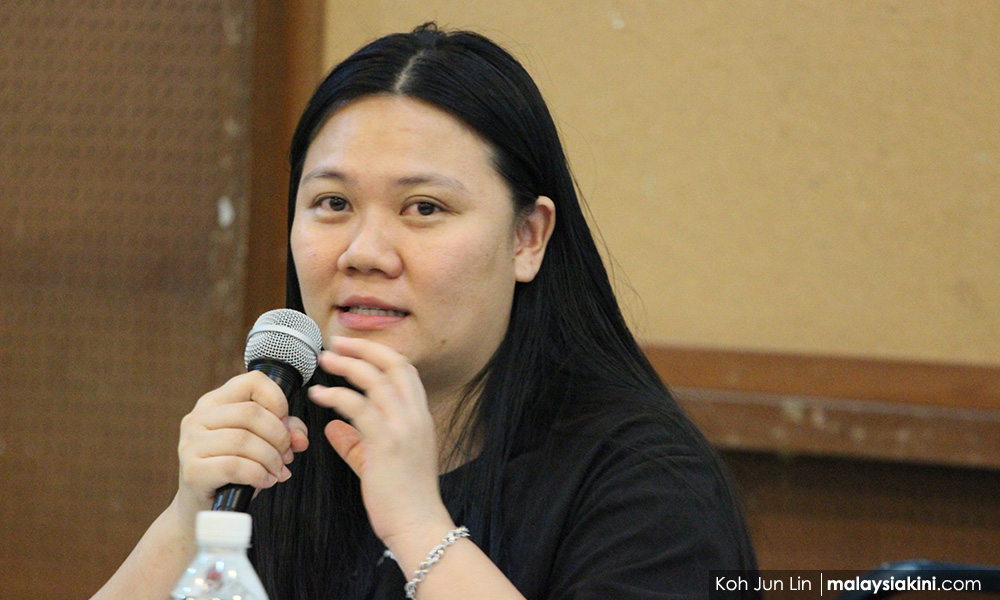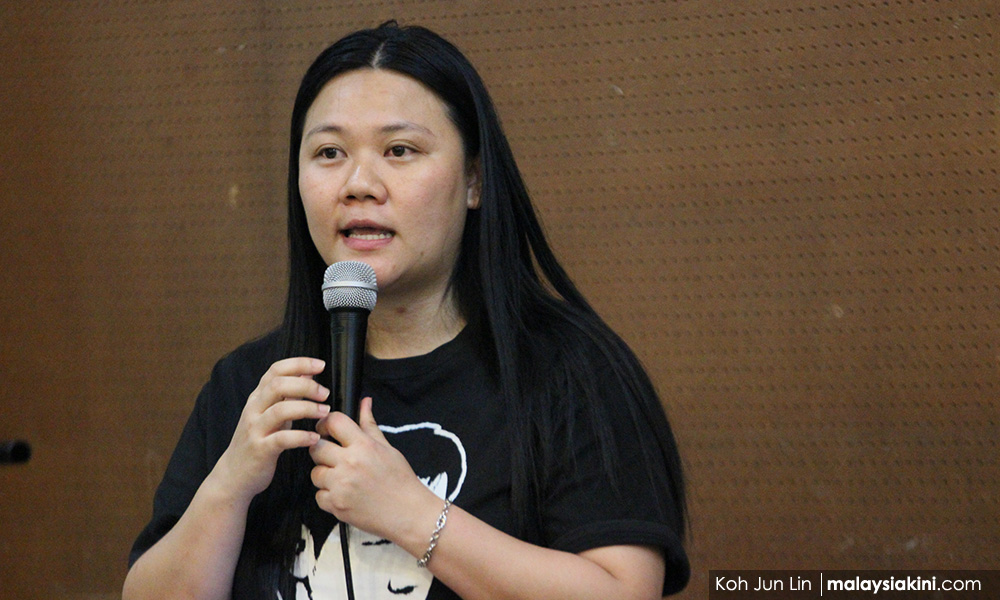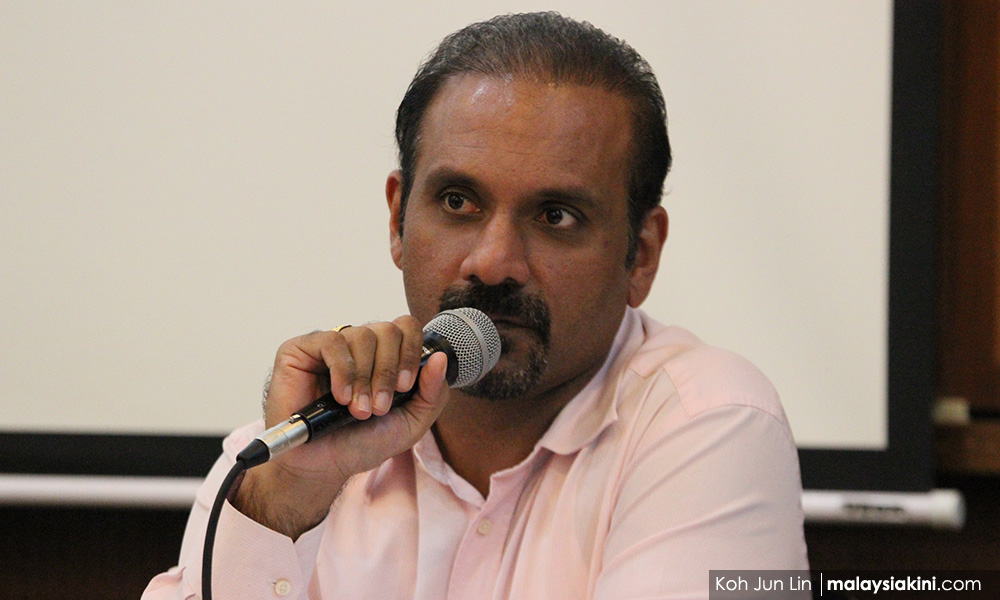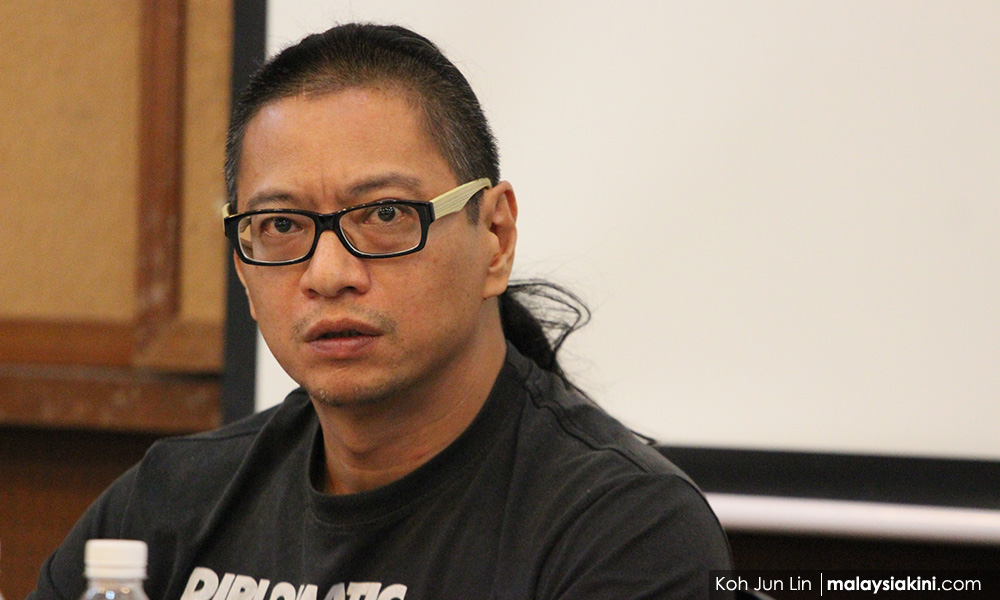
Teoh Lee Lan, the sister of the death-in-custody victim Teoh Beng Hock, has called for the burden of proof to be reversed in cases of custodial death.
This would mean that in future cases of death-in-custody, the prosecution would not need to prove beyond reasonable doubt that an accused is responsible for the death, in order to secure a conviction against the accused.
Instead, the officers in charge of the detainee would have to explain the death and prove that no foul play had taken place.
“In the last nine years in court, we and even our family members had to testify against the investigator who investigated the case, but our thinking is: What is so important about our statements? We were not there in the moment when the case occurred.
“In most custodial death cases, the burden of proof is in the hands of the (prosecution). They would have to find evidence that - as in the case of Beng Hock - the Malaysian Anti-Corruption Commission (MACC) had done something to Beng Hock. But then, this should not be the way. We should change the current system.
“We should change the burden of proof the other way. For deaths in custody, we hope that the burden of proof has to be changed to the person keeping the witnesses and suspects because they are the ones who are taking care of the witnesses or suspects at the time.

“So, if anything happens to the witness or the suspect, they’d have to explain and prove they are innocent. If they cannot prove their innocence, then they are presumed liable for the case,” Lee Lan (photo) said.
Lee Lan was speaking at a forum in Kuala Lumpur last night following a film screening to commemorate the ninth anniversary of her brother’s death.
Beng Hock was found dead at the then Selangor MACC headquarters at Plaza Masalam, Shah Alam, on July 16, 2009, having fallen down nine floors from the building’s 14th floor.
He was then 30 years old and was serving as the political secretary to Seri Kembangan assemblyperson Ean Yong Hian Wah. Beng Hock has been taken to the Selangor MACC headquarters the days before, to be questioned as a witness, and was held there overnight.
The Court of Appeal held that Beng Hock’s death was due to “multiple injuries from a fall from the 14th floor of Plaza Masalam as a result of or which was accelerated by an unlawful act or acts of persons unknown, inclusive of the MACC officers who were involved in the arrest and investigations of the deceased.”
The decision overturned a the coroner’s court’s open verdict on Beng Hock’s death that was previously upheld by the High Court.
The appellate court also told the police to reopen the case, but the Attorney-General’s Chambers said it found no criminal element in the case, two years after the verdict.
After the Pakatan Harapan coalition took power in May, its newly minted cabinet agreed to reopen the case.

Beng Hock’s family lawyer Ramkarpal Singh (photo) said he had already sent a letter to attorney-general Tommy Thomas to request a meeting to discuss the case.
Ramkarpal said the letter was served directly to the attorney-general last Monday and he was told to provide further information.
“We will be doing all that. Once that is done, we hope to secure a meeting; with the family as well,” he told reporters after the forum.
He said he hopes the meeting will take place within the next two weeks.
'Old guard must not be involved'
Ramkarpal added that members of the “old guard” who are even remotely involved in Beng Hock’s case should not be involved in the new investigation, including the current MACC chief commissioner Mohd Shukri Abdull and Bukit Aman Commercial Crime Investigation Department (CCID) director Amar Singh Ishar Singh.
“That will compromise the process, regardless of the outcome. The process must be in accordance with law.
Mohd Shukri was the MACC director of investigations at the time of Beng Hock’s death, while Amar had led the police special investigation team to reopen the case into Beng Hock’s death following the Court of Appeal decision.
Also at the forum was the Universiti Malaya law lecturer Azmi Sharom, who spoke on ways the new Pakatan Harapan-led government could ensure the rule of law.

Azmi (photo) said the government should set up the Independent Police Complaints and Misconduct Commission (IPCMC), which it had promised to do within its first term in power.
Introducing this check on the police would remove a “culture of invulnerability” in the force, he said.
He said the government should also ratify the UN Convention against Torture and Other Cruel, Inhuman or Degrading Treatment or Punishment (Uncat) and incorporate it into domestic law.
Azmi noted that Malaysia had ratified only three international human rights instruments, and even then, the ratification for two of those instruments contained reservations on clauses that pertain to torture.
Make sure Uncat is effective
The human rights instruments that Malaysia has ratified are the Convention on the Elimination of all Forms of Discrimination Against Women (Cedaw), the Convention on the Rights of Persons with Disabilities and the Convention on the Rights of the Child (CRC); with the latter two ratifications containing the reservations.
“In the CRC and the in the Convention on the Rights of Persons with Disabilities, there are provisions saying ‘don’t torture’ – don’t torture children, don’t torture the disabled. Malaysia has made reservations for both!
“Not only do we like torture, we want to torture our kids and we want to torture our disabled as well.
“So, (Foreign Minister) Saifuddin Abdullah said he wants to ratify this treaty (Uncat). You bloody well ratify this treaty, mate, and make sure it is part of our domestic law.
“Don’t just ratify it and not make sure that it is effective in our country, because some judges need things to be spelled out and slapped on their foreheads before they enforce it,” Azmi told the forum.
About 50 people attend the forum that was organised by the Kuala Lumpur and Selangor Chinese Assembly Hall’s Civil Rights Committee.
The forum also included a screening of the 2010 documentary “Unjust” by Josefina Bergsten.
The hour-long film tells the stories for three women battling state impunity in Indonesia, Thailand and Sri Lanka, following the death or enforced disappearance of their husbands. - Mkini



No comments:
Post a Comment
Note: Only a member of this blog may post a comment.